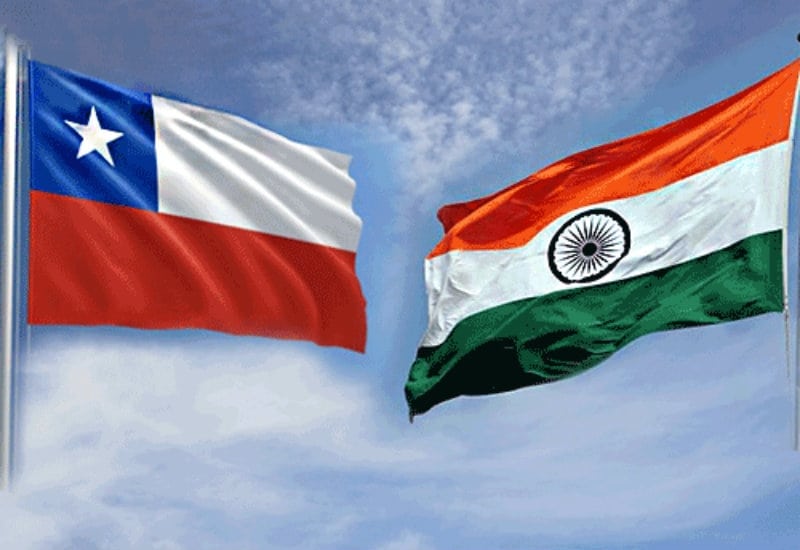
SANTIAGO/NEW DELHI – A milestone trade agreement between India and Chile which was approved by the Indian Cabinet on September 6, 2016 will be effected from May 16, 2017.
The expanded PTA will benefit both the countries in several ways, as a wide variety of concessions has been agreed upon on a number of tariff lines by both the sides.
“The expanded PTA has a wider coverage. This would facilitate exporters of both sides to take the advantage of tariff concessions as per the expanded PTA immediately which covers around 96 percent of bilateral trade.”
A Preferential Trade Agreement (PTA) which was signed on March 8, 2006, came into force in 2007.
“The original PTA had a limited number of tariff lines, wherein both sides had extended tariff concessions to each other,” the ministry said in a statement.
In the first offer, on 8-digit level, India had offered to Chile 178 tariff lines while Chile offered 296 tariff lines. The recent expanded agreement has a wider coverage wherein Chile has offered concessions on 1798 tariff lines with a margin of preference(MoP) ranging between 30-100%, in turn India has offered concessions on 1031 lines with a MoP ranging from 10-100%.
These tariff lines are based on HS 2012, when HS 2017 Nomenclature was concluded in Jan 2017, both countries have agreed to align their Annexes on various Schedules of Tariff Concessions, which will benefit exporters on either side immensely.
Among India’s largest trading partners in LAC, Chile comes fourth after Brazil, Venezuela and Argentina. As per statistics given in the Ministry of Commerce, during 2014-15 India’s bilateral trade with Chile touched a level of $3646.45 million compared to $2655.55m in 2011-12. However in 2015-16 trade declined and stood at $2639.99m mainly due to global fall in crude oil and international commodities.
Chile imports from India are diverse consisting of drugs, pharmaceuticals, polyester fibers, transport equipment, tires and tubes, leather products, engineering goods, ready-made garments, imitation jewelry, sports goods, handicrafts, organic/inorganic chemicals and textiles.



